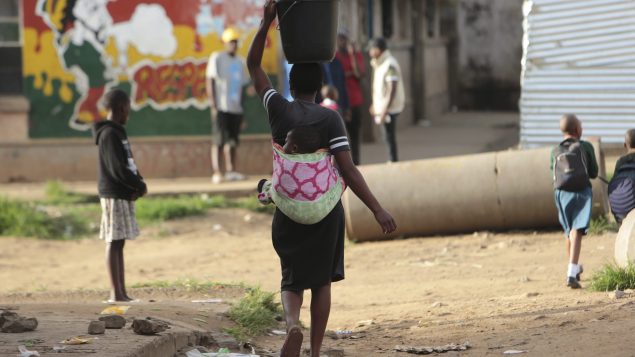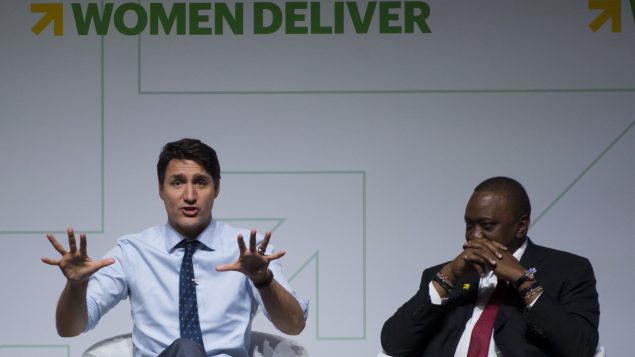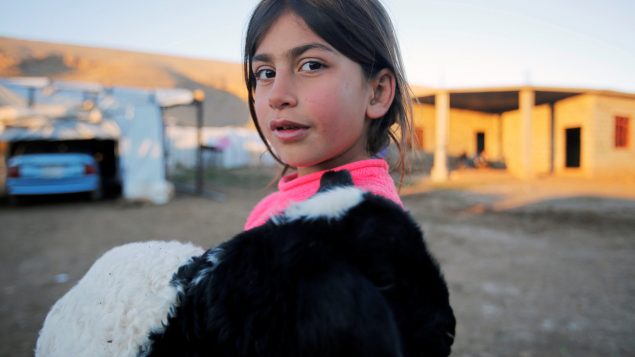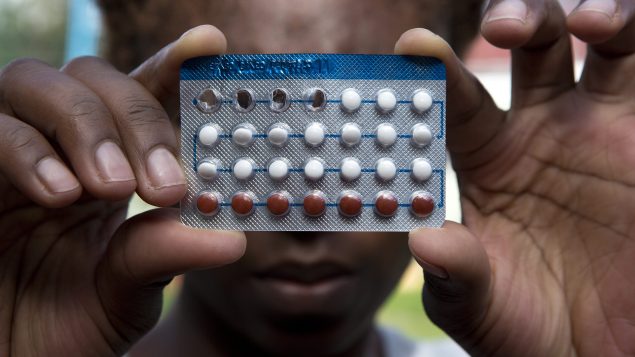Aid groups are praising Ottawas’s pledge to allocate $93.7 million to fund projects supporting sexual and reproductive health and rights for millions of women and girls in developing countries whose access to these services has been severely curtailed as a result of the pandemic.
Canada’s International Development Minister, Karina Gould, made the announcement at the #SheDecidesNow Virtual Round Table on Monday.
“Even in the midst of a global pandemic, we must continue to push forward, to advance the sexual and reproductive health and rights of women in all their diversity in developing countries,” Gould said in a statement.
“These rights are the foundation of gender equality and the achievement of development goals of food security, economic development, improved health outcomes and better education.”
Millions without access to contraceptives

In this Monday, April 6, 2020 photo, a woman carries a her baby and a bucket of water in Harare. As the COVID-19 pandemic rages on, the number of women unable to access family planning, facing unintended pregnancies, gender-based violence and other harmful practices could skyrocket by millions of cases in the months ahead, according to data released by UNFPA, the United Nations sexual and reproductive health agency, on April 28, 2020. (Tsvangirayi Mukwazhi/AP Photo)
About 47 million women in 114 low- and middle-income countries may not be able to access modern contraceptives amid the lockdowns and disruptions in services caused by the COVID-19 pandemic, according to data released in April by UNFPA, the United Nations sexual and reproductive health agency.
This is expected to result in additional seven million unintended pregnancies, as well as 12,200 to 56,000 additional maternal deaths, if the lockdowns continue for six months and there are major disruptions to health services, according to the UNFPA estimates.
Each year, 25 million unsafe abortions take place because of restrictions on access to safe medical treatment, according to the World Health Organization. The absolute majority of unsafe abortions (97 per cent) occur in developing countries in Africa, Asia and Latin America.
Fleshing out previous funding announcements

Kenya President Uhuru Kenyatta looks on as Prime Minister Justin Trudeau addresses a panel at the Women Deliver 2019 Conference in Vancouver, Monday, June 3, 2019. (Jonathan Hayward/THE CANADIAN PRESS)
Canada’s pledge is part of the commitments announced by Prime Minister Justin Trudeau in 2019 and in 2017.
It does not represent new funding but fleshes out the broad funding announcements made by the Trudeau government at the Women Deliver 2019 Conference in Vancouver in June 2019, where Canada pledged to increase its funding for women and girls’ health around the world to $1.4 billion every year starting in 2023, with half of this money dedicated to sexual and reproductive health projects.
- Trudeau pledges $1.4B for reproductive health services worldwide in 2023
- Canada pledges $650M for sexual, reproductive health
The 2019 pledge, in turn, expanded on the government’s 2017 commitment to invest $650 million over three years to address gaps in sexual and reproductive health globally.
Gould said the Canadian funding will focus on areas often neglected in development assistance: comprehensive sexuality education and support for adolescents; advocacy; and family planning and contraceptives.
‘Immediate danger from physical, sexual and emotional violence’

A Yazidi girl who was kidnapped by Islamic States militants is seen in a refugee camp on Mount Sinjar, Iraq February 4, 2019. Picture taken February 4, 2019. (Khalid al-Mousily/REUTERS)
David Morley, president & CEO of UNICEF Canada, welcomed the announcement.
“Canada has a demonstrated track record of saving lives through leadership in women and children’s health, including sexual and reproductive health for adolescent girls, and their protection from gender-based violence,” Morley said in a statement.
Health systems are under extreme pressure as a result of COVID-19, with a real risk of health resources being diverted to respond only to the pandemic and forgetting other vital health concerns, he added.
Caroline Marshall, senior health policy adviser at World Vision Canada, said the announcement comes at a pivotal time.
“The indirect impacts of COVID-19 have meant that women and girls are less able to access sexual and reproductive services and are experiencing greater gender-based violence,” Marshall said.
World Vision’s modelling estimates that there could be as many as 13 million additional child marriages due to the lasting impacts of COVID-19, Marshall said.
About 85 million boys and girls, including refugees, are in immediate danger from physical, sexual and emotional violence within the next three months, she added.
“Canada’s support will ensure that we can reach the most vulnerable, and mitigate some of these long-lasting impacts,” Marshall said.







For reasons beyond our control, and for an undetermined period of time, our comment section is now closed. However, our social networks remain open to your contributions.